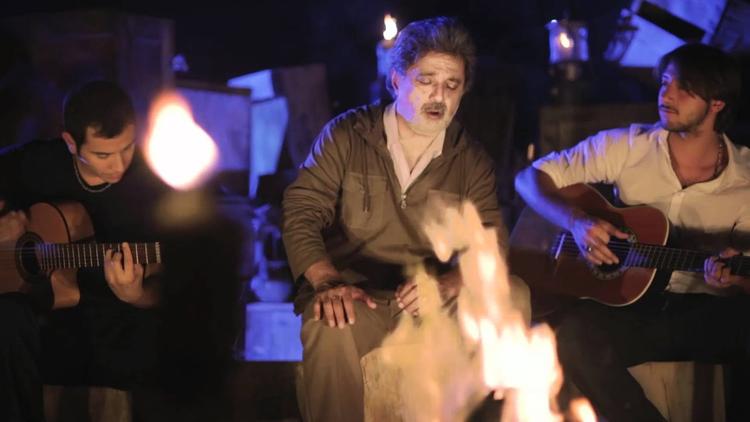March
26, 2024

Newark,
Del. (Special to Informed Comment) – Amidst war and genocide in Ukraine and in
Gaza, a new spring came along. For millions of Persian-speaking people, March
19 marked the beginning of Nowruz or new day this year. A holiday with
Zoroastrian roots, Nowruz is celebrated in Iran, Afghanistan, Tajikistan, and
parts of India and the Arab world more. It lasts for 13 days and ends with a
picnic. It is indeed a beautiful celebration.
At
the beginning of the Iranian revolution, the new regime in Tehran tried in vain
to dissuade Iranians from celebrating this ancient feast, exhorting them to
concentrate more on Islamic feasts.
It
was no use. People fiercely resisted such policies and ended up celebrating
Nowruz even more enthusiastically.
A
day after this year’s Nowruz, on March 20th, a beloved artist/singer passed
away from cancer in Maryland. He was seventy-eight years old. His name was
Faramarz Aslani. We, the generation from before the Iranian revolution, grew up
with his music, a mix of Spanish guitar and Persian melancholic lyrics.
Aslani,
like so many singers who did not fit the new regime’s definition of culture,
left Iran for England and eventually emigrated to the U.S. He continued to
sing. His voice was deep, warm, and passionate, sometimes sad.
At
the beginning of the Revolution, like so many artists and intellectuals, he was
for change, not knowing what the future had in store. He sang a song depicting
the struggle against the former regime in favor of the people’s movement. But
soon, like so many he became disillusioned. His songs were forbidden and called
taghouti, a Quranic term describing anything tyrannical and commonly used for
the shah’s regime.
Yet,
the youth in Iran still enjoyed his music and would listen clandestinely.
Over
the years, things changed. I vividly remember that on one of my last trips to
Iran, a large gathering of men and women and youngsters was held on the grounds
of the Borj Milad in Tehran.
Faramarz
Alsani’s music filled the air.
Aslani
held concerts with other famous singers in cities with a high concentration of
Iranian expatriates such as Los Angeles and Washington, D.C. He was revered not
just as a musician but as a fine human being who truly cared about his country
and his people.
He
started a tour in the U.S. in 1992 at the Shrine Auditorium in L.A. received by
an enthusiastic crowd, he said, “These songs are from all the sweet and bitter
memories of my life.”
A
year later, he finished an album called Hafez, A Memorandum, which consisted of
eight poems by Hafez, Iran’s most famous mystical poet.
In
2010, he released another album titled, The Third line (Khatte Sevvom).
Yet,
his song, Age Ye Rooz, (if you go on a trip one day), became the signature song
of nostalgia for many Iranians, evoking the past, a different era.
Like
so many before him, Faramarz Aslani died in exile, far away from his homeland,
where he had grown up and had learned to love and compose music.
He
became a journalist in London, but it was always his music and his songs that
remained.
He
is gone now leaving behind a legacy. The many tributes on social media are
filled with his music, remembering a legend that died a day after Nowruz.
Adieu
Mr. Aslani….

No comments:
Post a Comment